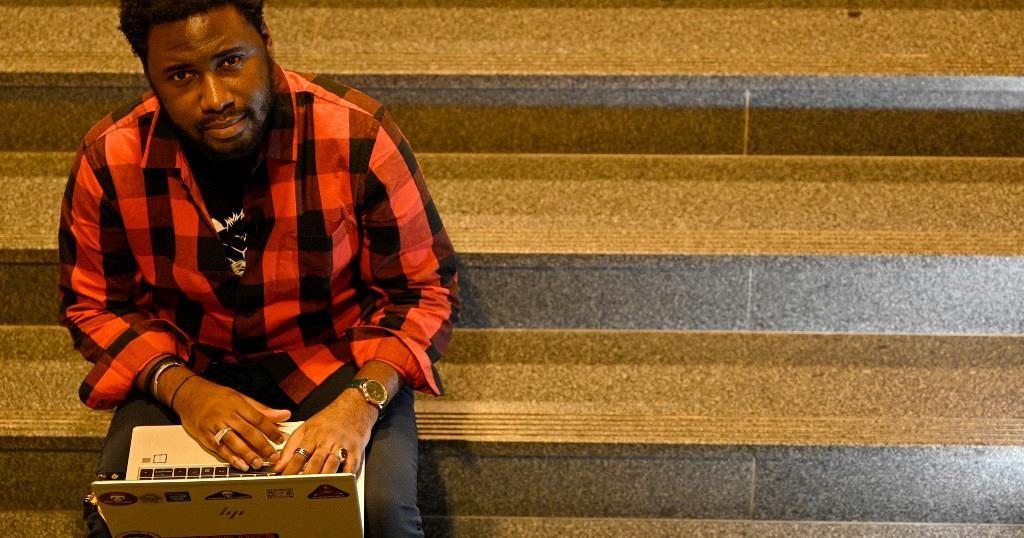Africa-Press – Angola. “You see, here, we have an internal database of the Russian Ministry of Education that has leaked,” says Clement Domingo, his finger pointed at a Cyrillic document from the encrypted messaging system Telegram.
Since Russia’s invasion of Ukraine, this cybersecurity specialist, co-founder of the NGO “Hackers Without Borders”, has been sleeping only a few hours a night.
“It’s pretty crazy what’s going on, especially on Telegram. There are quite exceptional data leaks and an absolutely crazy upsurge of cyberattacks for the last ten days, both on the Russian and Ukrainian sides,” explains the 31-year-old, who is based in a restaurant in Rennes.
Among the targets, nuclear power plants, Russian and Ukrainian state agencies, banks and companies working with Russia.
The French-Senegalese, alias @_SaxX_ on Twitter, holds a BTS in computer management and defines himself as a “hacker”. He got his first computer at the age of 18, and wrote his first lines of code with the sole purpose of “winning video games faster”.
After ten years spent advising companies and administrations, spotting flaws and getting paid for the service rendered, sometimes “5,000 euros after five minutes spent on a website”, the thirty-year-old is now campaigning for cyber protection. In early February, he co-founded the NGO “Hackers Without Borders”, which already has over 300 members.
“In times of war, in cyberspace, it doesn’t matter if you are a hospital or a humanitarian association, you are at the mercy of cybercriminals. Our goal is to offer a digital shield to NGOs”, says the man who claims to be an “ethical” hacker to “secure our democracy”. Recently, the servers of the International Committee of the Red Cross were the victims of a serious cyberattack.
– “Real attacks”-
Glued to his screen full of geek stickers, Clement Domingo deciphers more than ever the cyberwarfare that pro-Russian, pro-Ukrainian hackers, as well as “cyberbelligerents” who enter the dance “with the sole purpose of making money”.
“We could believe that as a French citizen, we have little chance to be impacted, but we can be if our data is exposed when a company is hacked,” he observes. We can also receive a “very well turned out” e-mail from a cyber hacker showing a video of a Ukrainian family under the bombs and inviting us to donate one euro to support the Ukrainian civilians.
To protect yourself, he calls for “having a strong password, having several email addresses and staying vigilant”.
According to the hacker from Rennes, no need “to have a lot of skills to do harm”. A search engine “known worldwide”, can thus recognize any object connected to the Internet in any country, from the IP camera of the police to the baby monitor, and launch attacks.
“Since the war started, I’ve spent a lot of time digging up information that appears on social networks when I know it’s going to be useful, or harmful to people. We have different contacts in the police or in the ministries to alert as quickly as possible,” he explains.
For a few days, a group called “IT Army”, the cyber army of volunteer hackers raised by Ukraine, is in fact piloted by pro-Russian hackers and offers malicious software to download.
Most of the time, the attacks, which can happen “every minute”, remain invisible.
Only a handful have been claimed, such as the hacking of six Russian TV channels, or are coming to light, such as the attack on the infrastructure of the Ukrainian rail network.
“We are witnessing real attacks. Trains carrying Ukrainian civilians fleeing their country had to make very long stops after an attack that erased data from railway sites,” he recalls.
For More News And Analysis About Angola Follow Africa-Press






